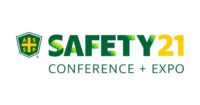Path to wisdom
Path to wisdom may sound trite but it’s a natural objective for any professional. Consider the career path taken by many SHE pros:
Initially an individual who seeks to become a SHE pro begins to acquire information through a combination of education and experience. As the information becomes unwieldy the pro joins an association such as the American Society of Safety Engineers (ASSE) or American Industrial Hygiene Association (AIHA) to help them refine their knowledge. SHE knowledge may be demonstrated by obtaining a credential such as the Certified Safety Professional (CSP) or Certified Industrial Hygienist (CIH) designation.
Body of knowledge
Paths to wisdom are being challenged today because of the unrelenting growth of information. No longer is it sufficient to simply join an association – you’re encouraged to align with practice specialty groups within an association. ASSE, for example, includes 17 practice specialty groups such as academics, construction, ergonomics, industrial hygiene, and fire protection. Online communities such as LinkedIn and Google+ also form into dozens of special interest groups and circles where people of like-minds share thoughts and best practices.
Specialty groups are encouraged to build a body of knowledge specific to their topic of interest. Each of ASSE’s practice specialty groups, for example, is building their body of knowledge in topic areas that include: regulatory issues; applied science and engineering; cost analysis and budgeting; benchmarking and performance criteria; best practices; and general (industry-related). See ASSE’s “Body of Knowledge” at http://www.safetybok.org/topics/ for more information.
Specialization
The explosion of information over the past couple decades has challenged the logic of where just one credential demonstrates wisdom in the SHE field. At one time obtaining the CIH credential demonstrated that you had wisdom of industrial hygiene topics. This is no longer true. For example, regulations in some states require a CIH to obtain special credentials to survey public buildings for asbestos or lead – these are basic hazards understood by any CIH.
The AIHA® Registry Programs LLC was established to meet new demands for specialized knowledge. According to AIHA® Registry Programs, “certification is fundamental, registration is supplemental.” In addition to the Asbestos Analyst Registry, credentials are now being developed to register individuals with expertise in hazard communication and SDS/label authoring; real-time detection of potential exposures; statistical analysis in exposure assessment; and, financial and non-financial value assessment of SHE projects and programs. This initial list will expand. For more information see AIHA registries at http://www.aiharegistries.org/Pages/default.aspx.
Subject matter experts
Although technology has fostered an endless growth to information, technology also allows subject matter experts to harness information into knowledge in ways not available just a few years back. Apps in smart phones are an example.
Consider the AIHA® Registry Program for “statistical analysis in exposure assessment” mentioned above. AIHA’s Exposure Assessment Strategy Committee sponsored the free Android and iPhone app IH DIG (Industrial Hygiene Data Interpretation Game). According to the app introduction, “The IH DIG is a fun app to help Exposure Assessors train their unconscious data interpretation algorithms to better match Bayesian Likelihood analysis.” I’ve played the game and was a monkey a few times but also improved my knowledge.
Ethics
The requirement for ethics education to maintain the CIH credential or ethics expectations of a member in an association are examples of the new SHE path to wisdom. Recall, wisdom is an appreciation of how, why and when to apply knowledge. Technical knowledge alone does not imply wisdom. For example, many SHE pros have the technical knowledge to sample for mold. Wisdom is why many SHE pros do not sample for mold but address the hazard and client expectations in other ways. You can’t obtain wisdom today without knowledge of ethics.
The future – growth of clans
Subject matter experts and people with specialized credentials are forming clans to support and promote their topic of interests. This will foster competition and collaboration among other clans to determine which group is more relevant.
Turf among clans must be respected. For example, the AIHA® established a Memorandum of Understanding with the Society of Hazard Communication before launching their registration for hazard communication and SDS/label authoring.
Inevitably there will be infighting among clans that will spread through associations. MOUs hold only so long as turf is respected. For decades the interests of AIHA® and ACGIH were aligned and each group collaborated toward mutual goals. This may be the first year where they do not join together for an annual conference.
The growth of specialization and subject matter experts will challenge the wisdom of professional associations to decide what clans to support and which to ignore. For example, in a cost-saving move the AIHA® reduced the number of PDCs for their 2012 annual conference. This left about one-half of proposed PDCs with no opportunity to present. If the AIHA® will not provide a venue or recognition of a PDC topic, the subject matter experts i.e. clan leader must look elsewhere for a home. Some of the PDCs that AIHA® rejected will not go away quietly.
Join a clan
The more you look the more you find that generalization is fading and specialization is growing. How many LinkedIn or online groups do you follow or “like” now? If you go to an annual conference what track of topics do you attend? There is only so much of you to go around and this means you will eventually need to specialize. The decisions you make will take you down the path to become a subject matter expert, whatever that subject is. And, as a subject matter expert you will need to impart wisdom to others that follow down your path.

